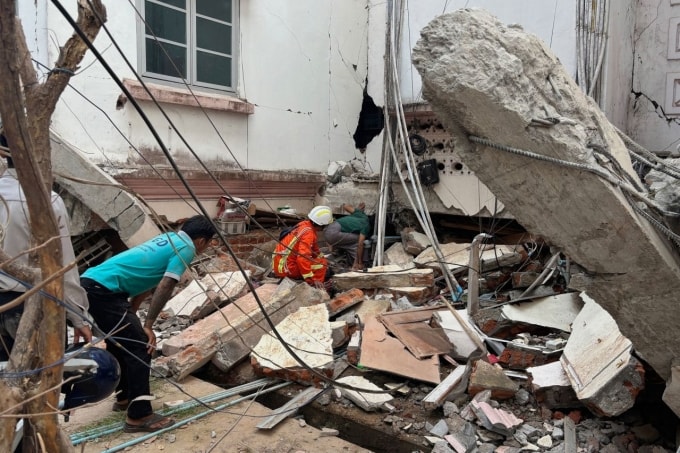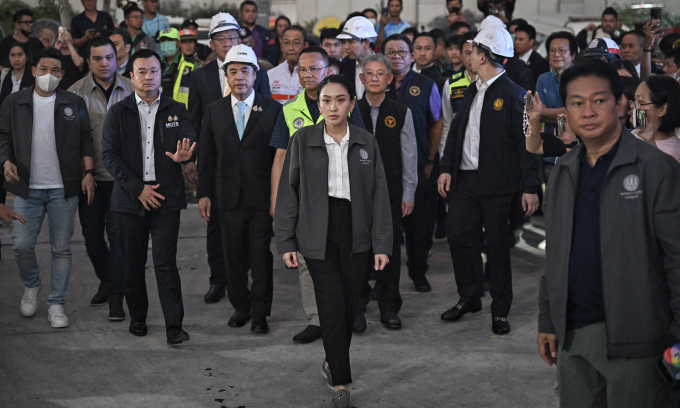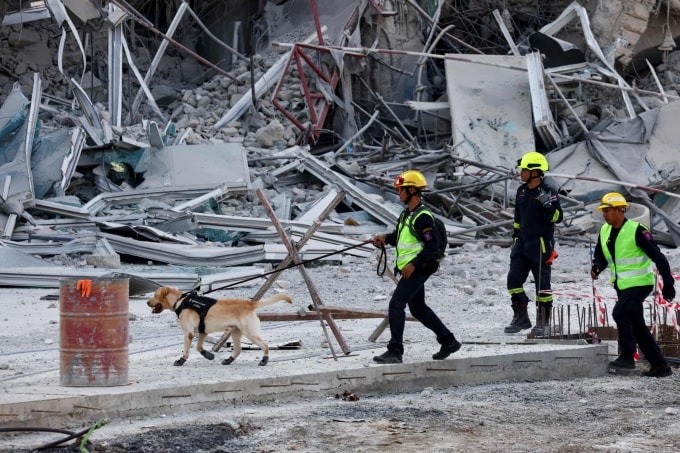Myanmar authorities announced that at least 144 people were killed after a 7.7-magnitude earthquake in the central part of the country.

Myanmar's leader, General Min Aung Hlaing, said 144 people were killed and 732 injured in the country's earthquake, adding that the death toll would continue to rise.
The World Health Organization (WHO) said it has activated its emergency management system to respond to the earthquake in Myanmar and is mobilizing its logistics center in Dubai to prepare to deliver medical supplies to the country.
WHO spokeswoman Margaret Harris said the organization considered the earthquake to be a “very serious threat to life and health” and that there were many injured people who needed treatment. She stressed that the WHO would focus on getting essential medicines into Myanmar, given that the country’s health infrastructure may have been damaged by the earthquake.
WHO has a special unit to deal with the situation in Myanmar, a country engulfed in conflict between the military and rebel groups. The organization recently conducted an assessment to determine the best way to transport aid into Myanmar.
"We are ready to act, but we have to know exactly where, what the specific needs are and why. Information from the ground is very important at this time," Harris said.
Meanwhile, European Commission (EC) President Ursula von der Leyen said the European Union (EU) is supporting the response and is ready to provide further assistance if needed.
"It is heartbreaking to see the scenes in Myanmar and Thailand after the devastating earthquake. My thoughts are with the victims and their families," she wrote on social network X. "Europe's Copernicus satellite system is supporting rescue and relief efforts."
French Foreign Minister Jean-Noel Barrot also said Paris was ready to assist those affected, adding that its diplomatic facilities in the capital Bangkok had been evacuated.
Thai Prime Minister: Situation is easing

Thai Prime Minister Paetongtarn Shinawatra visits the site of a 34-storey building under construction that collapsed in Bangkok. Bangkok Governor Chadchart Sittipun said eight people were killed in the city by the earthquake, including seven in the high-rise collapse.
She said the situation was "starting to calm down" and people could return home without fear of danger, as the problem buildings were all under construction and structurally unstable.
The Thai Prime Minister said there were 12 aftershocks following the earthquake in Myanmar, and there was no risk of a tsunami because the epicenter was located deep inland.

"I want to assure people that the aftershocks following the earthquake do not pose a major threat. Residents of high-rise buildings that suffered minor damage can return home safely," she said.
Thai authorities have previously declared the capital Bangkok a "disaster zone" and asked people to leave high-rise buildings.